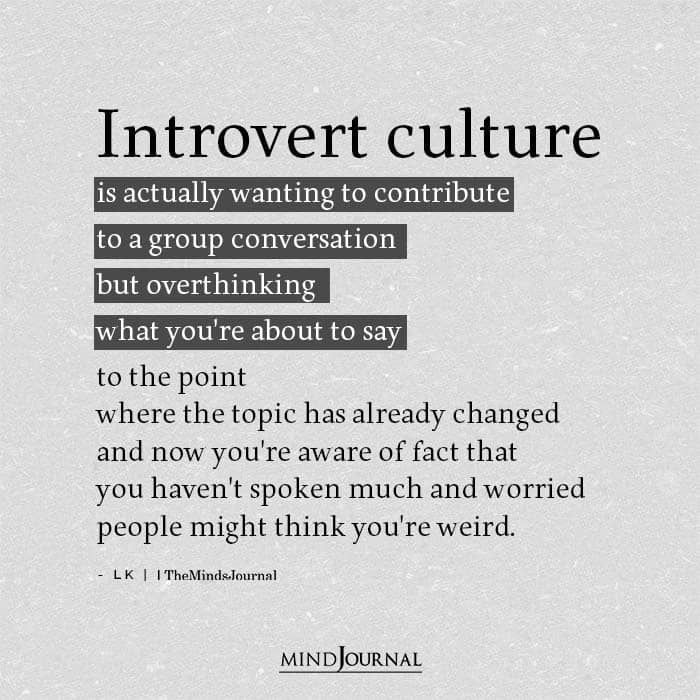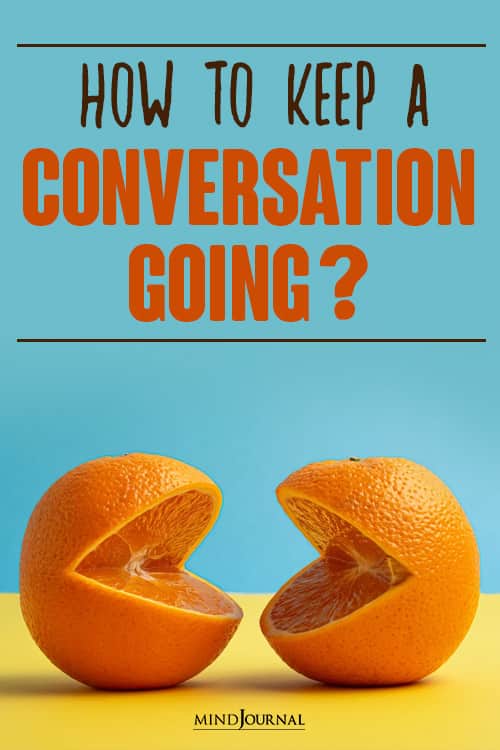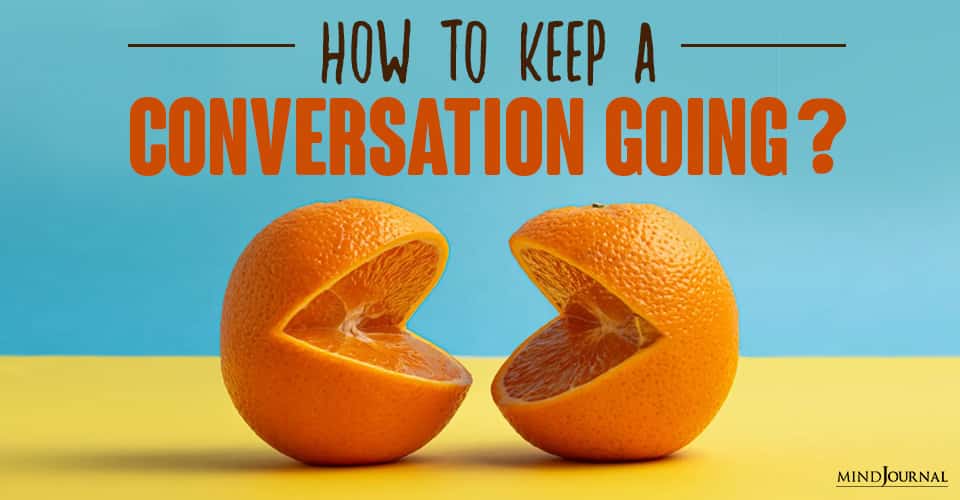We’ve all been there, we’re talking to someone and we don’t know where to take it, wondering how to keep it going and ran into awkward silence thereafter. Do you always end up with small talks? And then regret ‘I wish I could keep the conversation going’?
“I don’t know what to say.”
“I don’t have anything to add to the conversation.”
“I’m probably bothering them.”
“My mind just goes blank.”
“Nobody asked my opinion.”
I hear these statements a lot from my clients.
So I thought I’d share a tip for keeping a conversation going (which is arguably harder than starting a conversation–it’s so easy to let it trail off, like a car on empty rolling to a stop.)

Raise your hand if this has happened to you:
Your colleague: Good morning. How was your weekend?
You: It was great.
Both of you: [awkward silence]
I know you can’t see me, but my hand is up. Therefore, try this instead:
When you’re on the listening side of the conversation, listen for a “hook.” A hook is anything that piques your interest, reminds you of something else, elicits a question, or that you can relate to. You get the point. It can be any part of what’s being said–the bar is low.
Read The Art of Conversation: 25 Great Conversation Starters
Here’s an example of listening for a hook:
You to your colleague: Good morning. How was your weekend?
Your colleague: Great. My husband and I did some work on my dad’s place.
Okay, perfect! You now have a bunch of hooks at your disposal. Maybe you heard husband, work, dad, or place as the hook.
Read 48 Deep Conversation Starters To Know Someone Better
Whatever part of that sentence your brain grabbed onto, you can toss it back with a related response:
- Nice–are you the DIY-er or is your husband?
- That’s cool–what did you work on?
- Oh, nice–I’m thinking of doing some remodeling on my place but knowing where to start is always a challenge.
- That’s excellent–do you see your dad often?
- My dad’s place could use some work–he’s lived there for 40 years so you can imagine how full the basement is.
- Great. Does your dad live locally or did you have to travel?
- That’s awesome that you do it yourself–I put caulk around my tub several rental apartments ago, but that’s the end of my skills.
Whatever you toss back, offer a “hook.” Ask them a question or offer up something about you–what you think, do, feel, remember, or relate to.
Big asterisk: If you tend to be a question-asker, push yourself to talk about yourself a bit more. It’s common for those of us who are on the quiet or shy side to hold our lives close to the vest. We think we’ll annoy people by talking about ourselves, that we have to deliver a 100% relevant comment, or we just don’t know what to say.
Read 50 Red Hot Conversation Starters To Spice Up Your Date
But what ends up happening is we’re hard to get to know. We make people work for any information they get from us. And not everyone is willing to do that. In addition, we inadvertently send the message that we’re cold, distant, aloof, or simply don’t want to talk, when really it’s anxiety getting in the way.
Therefore, try out talking more about yourself. Telling your conversation partner about yourself fills in their picture of you with brighter colors, making you more familiar, more likable, and more trusted.
For example, here’s how you might offer a hook when you’re speaking:
Your colleague: How was your weekend?
You: It was great. I…
(choose one:)
- Took the kids fishing.
- Made my annual pumpkin bread.
- Finally finished this book I’ve been reading.
- Took my dog to get groomed.
- Went to the farmer’s market on Sunday and got some amazing apples.
- Saw a parade of tuba players wearing tutus march by as I got my morning coffee on Saturday.
There. No matter what you picked, you gave them something to work with. They can expand on what you said, such as…
- Oh really? Where do you go fishing around here?
- My mother used to make the best pumpkin bread, but then she went paleo, to my chagrin.
- What book?
- I didn’t know you had a dog. What kind do you have?
- There is a great farmer’s market just a couple blocks from my house–last time I was there they had Rubinette apples, which I had never heard of before.
- Well, that’s a new one. I’ll have to try your coffee shop.
Then, listen for a hook in whatever they offered. It’s like tossing a ball back and forth. And just like tossing a ball back and forth, it gets easier the more you do it.
Now, if you offer a hook, is your conversation partner guaranteed to pick it up? No, they may just leave it there: “Oh.” Or, “Cool.” But that’s okay. As we toss the ball back and forth, sometimes it gets dropped. It’s not a big deal. We just pick it up and try again later, or, if you’re willing, try again right away.
Read How to Connect Deeply With Almost Anyone In 10 Seconds Flat
Listening for and offering hooks might feel clunky and unnatural at first. It might feel like it moves too fast. But you don’t have to do it perfectly. And at some point you won’t have to think consciously about it–it’ll be second nature to riff on everything from dogs to apples to tutus.
Apply this conversation hack and let me know how it works for you.
Do you want to conquer social anxiety and want to be your true self? Then, How to Be Yourself: Quiet Your Inner Critic and Rise Above Social Anxiety, would be the best book to read.
Written by: Ellen Hendriksen
Originally appeared on: Ellen Hendriksen












Leave a Reply